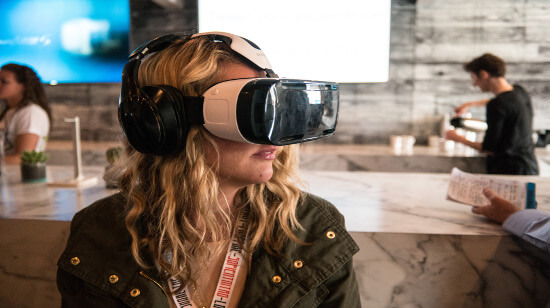The internet’s most amazing feature is its ability to provide a platform for learning, creativity, and development. It is the internet that made things like social media, banking, gaming and yes, gambling a possibility.
The next step in this journey is almost definitely virtual reality. For many years, the idea of virtual reality becoming a meaningful method of communication and entertainment was reserved solely for sci-fi movies. Today, however, there are huge strides being made in VR related to all manner of sectors, from the social to the medical and educational. So, what does this new medium mean for online gambling?
The Virtual Reality of Online Gambling
At their core, online casinos aim to replicate the gambling opportunities of a real-life casino. For the most part, they succeed — online casinos bring the games to gamblers everywhere, even in remote areas where a land-based casino is not in easy reach. Online casinos also remove other restrictions from players — if you are unhappy in crowds, work odd hours or simply cannot find the time to travel to a casino, online sites will definitely appeal.
However, for many players, it’s not that they don’t want to visit a land-based casino but that they can’t. This is where VR comes in. Players can experience the atmosphere, lights and sounds of casinos in gambling hubs like Macau or Las Vegas, simply by slipping on a VR headset. With more and more casinos investing in virtual reality capabilities, players can travel to far-flung places and experience different casinos, all with the one-time purchase of a VR headset.
At the moment, VR gambling accounts for just over £47.2 million in bets. Studies suggest that by 2021, that number will rocket to £423 million. Why is VR so popular?
Gamification is the key
If you have ever used a wearable fitness tracker, you’ll understand the growing interest in gamifying parts of everyday life. Millennials are very responsive to this — track and assign value to everyday tasks (such as getting the recommended 10,000 steps a day), and they suddenly don’t feel so dull, thus encouraging further examples of that behaviour. VR allows for a more connected, social experience while online — something that many players appreciate.
So, what does the future look like for VR? Facebook bought leading VR headset producer Oculus in 2014, for the cool price of $2 billion. Since then, the social media behemoth has been working on improving the technology, which will no doubt improve its price and thus encourage more uptake by customers. You just know that when Facebook invests in something, you can be sure that it’s a safe bet.
Once VR becomes more ubiquitous as a method of communication and entertainment, you can rest assured that the online casino industry will be paying much more attention to it, just as it had when the nascent mobile gambling technology started to get a foothold. VR may be the next standard for online casinos and the future looks bright!

